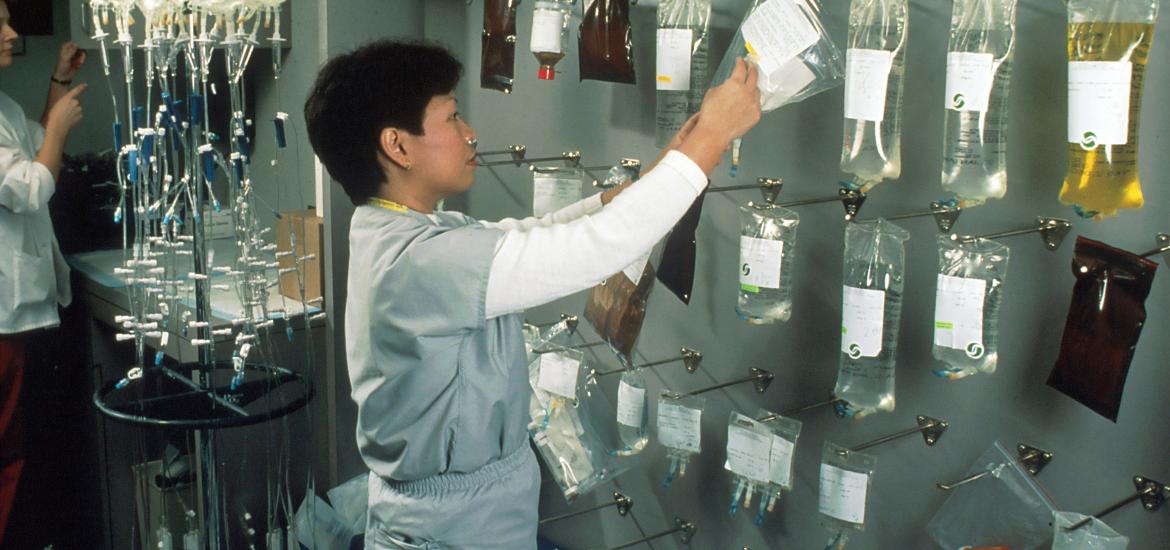
Off-the-shelf Car-T from Caribou does enough at six months
Curiously, however, higher dosing does not seem to be the answer to the company’s relapse problem.
Curiously, however, higher dosing does not seem to be the answer to the company’s relapse problem.

Caribou has joined Allogene in claiming that around half of the lymphoma subjects treated with its allogeneic Car-T project can develop responses that are maintained for at least six months. The result is significant because six-month durability is seen by some as a minimum that a patient’s remission has to hit to be considered relevant.
And, since off-the-shelf Car-T projects have struggled to yield lasting responses, a 50% bar is relevant because it broadly matches how autologous Car-T therapies have done in this setting. That said, Caribou’s data, the latest iteration of the Antler study of CB-010, make it clear that relapses might continue to be a worry.
Right now Caribou has persuaded enough doubters with a dataset that includes 16 patients, versus six in December. Its announcement was immediately followed by an upsized $125m equity offering, though with this being priced 20% below the previous night’s close a 23% share price drop on 14 July was unavoidable.
Sentiment has also been boosted by Caribou securing a $25m equity investment earlier in June from Pfizer – a big pharma company that, via Cellectis, had had a significant presence in allogeneic Car-T therapy, only to take a step back five years ago.
CB-010 is the lead in Caribou’s pipeline of Crispr-edited allogeneic cell therapies, and the update was the fourth from the first-in-human Antler study in relapsed/refractory lymphoma.
At last year’s EHA meeting the first data showed the first six patients given 40 million cells all going into complete response, but three relapsed by six months. In December the focus was still on the same six patients, but only two were by then in complete remission, with Caribou promising more data this year, including from higher doses of CB-010.
That came on 13 July, with the good news that the two responding patients were still in CR, now at 18 and 24 months. moreover, they have been joined by five other responders beyond six months. In a dataset comprising 16 patients Caribou has thus been able to claim a 50% six-month remission rate, and 44% rate of six-month CRs.
More puzzling is the fact that patients continue relapsing in spite of CB-010 being dosed higher. Four of the five new responders had been given 80 million cells, but in three subjects given 120 million cells there was one non-responder – Caribou’s first – and two remissions lasting less than three months.
CB-010’s safety profile remains promising, with severe cytokine release, neurotoxicity and infection rates of zero, 13% and 6% respectively. This appears broadly in line with the latest data Allogene presented on its corresponding CD19-targeting project ALLO-501/501A, at last month’s Asco meeting.
Allogene has also been able to claim having solved its earlier problems with relapses, with a new manufacturing process resulting in 42% of patients having CRs at well beyond six months. However, the Asco data comprised just 12 subjects.
While both datasets are promising, small patient numbers – from both companies – limit their reliability, especially given the bar that autologous Car-T therapy has set. Gilead’s Yescarta, for instance, puts some 50% of lymphoma patients into CR, but the Zuma-1 study has shown about 70% of these remissions maintained at two years.
Neither Caribou nor Allogene can at present boast a dataset as large or mature as that, and it will take a lot more follow-up to persuade most doubters.
564













